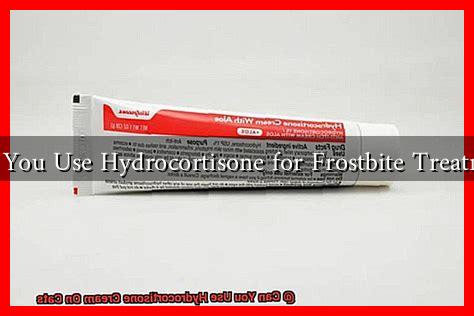-
Table of Contents
Can You Use Hydrocortisone for Frostbite Treatment?
Frostbite is a serious condition that occurs when skin and underlying tissues freeze due to prolonged exposure to cold temperatures. It can lead to permanent damage and, in severe cases, amputation. As winter approaches, understanding how to treat frostbite effectively becomes crucial. One question that often arises is whether hydrocortisone, a common topical steroid, can be used in the treatment of frostbite. This article explores the role of hydrocortisone in frostbite treatment, its effectiveness, and alternative options.
Understanding Frostbite
Frostbite typically affects extremities such as fingers, toes, ears, and the nose. The condition can be classified into three degrees:
- First-degree frostbite: Affects the outer layer of skin, causing redness and numbness.
- Second-degree frostbite: Involves blisters and swelling, with deeper tissue damage.
- Third-degree frostbite: Affects all layers of skin and underlying tissues, leading to potential gangrene.
According to the Centers for Disease Control and Prevention (CDC), frostbite can occur in temperatures as mild as 50°F (10°C) when combined with wind chill. Understanding the symptoms and seeking prompt treatment is essential to prevent severe complications.
What is Hydrocortisone?
Hydrocortisone is a corticosteroid used to reduce inflammation and suppress the immune response. It is commonly prescribed for conditions such as eczema, dermatitis, and allergic reactions. Available in various forms, including creams, ointments, and injections, hydrocortisone works by inhibiting the release of substances that cause inflammation.
Can Hydrocortisone Help with Frostbite?
While hydrocortisone is effective for treating inflammatory skin conditions, its use in frostbite treatment is not well-supported by medical literature. Here are some key points to consider:
- Inflammation vs. Tissue Damage: Frostbite primarily causes tissue damage due to freezing, rather than inflammation. Hydrocortisone may not address the underlying issues associated with frostbite.
- Risk of Infection: Applying hydrocortisone to frostbitten skin could potentially mask symptoms of infection, delaying appropriate medical treatment.
- Medical Guidelines: The American Academy of Dermatology and other medical organizations do not recommend hydrocortisone for frostbite treatment.
In summary, while hydrocortisone may reduce inflammation in certain skin conditions, it is not an appropriate treatment for frostbite. Instead, immediate medical attention is crucial for effective management.
Effective Treatments for Frostbite
When dealing with frostbite, the following treatments are recommended:
- Rewarming: Gradually rewarm the affected area using warm (not hot) water or body heat.
- Medical Evaluation: Seek medical attention for severe cases, especially if blisters or blackened skin are present.
- Pain Management: Over-the-counter pain relievers like ibuprofen or acetaminophen can help alleviate discomfort.
- Wound Care: Keep the affected area clean and covered to prevent infection.
In severe cases, treatments may include medications to improve blood flow, surgical intervention, or even amputation if the tissue is irreparably damaged.
Conclusion
In conclusion, while hydrocortisone is a valuable medication for various inflammatory skin conditions, it is not suitable for treating frostbite. The best course of action for frostbite involves immediate rewarming and medical evaluation. Understanding the symptoms and seeking prompt treatment can significantly reduce the risk of long-term damage. For more information on frostbite and its treatment, you can visit the CDC’s official website.

